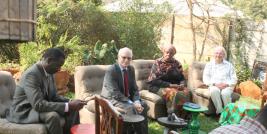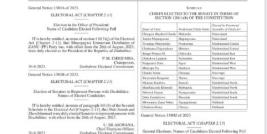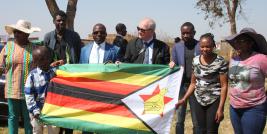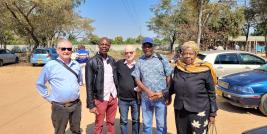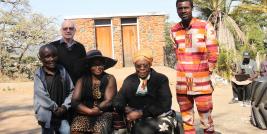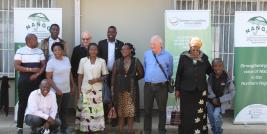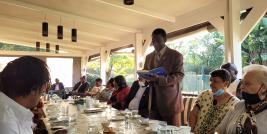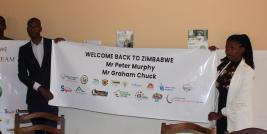Detailed reports from Zimbabwe on July 31, 2020, and the following days, show that there was no popular response to the call for anti-corruption rallies, and that the government pre-empted any possibility by preventive arrests, and a confused series of orders to close shops and then open shops. Police use of force was objectionable, but the most important thing is that no one was shot, and there were no reports of security forces using firearms, on the second anniversary of the 2018 National Elections which were overshadowed by soldiers shooting civilians. G40 was hoping for a repeat of 2018, and has made the most of the much more limited images of repression on July 31.
This is good for Zimbabwe and a setback for the strategy of the G40 (Mugabe) faction of ZANU-PF and its MDC Alliance ally, once again led by Nelson Chamisa. However, G40 soon regained the initiative by sending its top leaders to the African National Congress in South Africa, and mobilising Julius Malema’s Economic Freedom Fighters to speak out against the Mnangagwa government. Both the African Union and the ANC responded by emphasising the government’s abuse of human rights while the COVID-19 pandemic rages. On August 10, the ANC sent a two-person delegation to consult all parties in Zimbabwe, and Ms Lindiwe Zulu, former President Mbeki’s envoy in 2008, also underlined that Zimbabwe had a problem to be dealt with.
The G40 put it to the ANC that the problem was lack of unity in ZANU-PF, and hoped that South African President Cyril Ramaphosa would restore their former position in the party and government. But Mnangagwa put a different narrative to the ANC Delegation, who cancelled scheduled meetings with MDC Alliance, MDC-T and other parties, instead returning to Johannesburg to report to Ramaphosa.
This political infighting is important in the big picture of Zimbabwe’s chances for significant international support and a democratic future, but the much more urgent situation is the ongoing strikes of nurses and doctors, who are calling for a living wage and proper PPE in dealing with the pandemic. The health system is falling apart, under-equipped and understaffed; sick people who can afford it can get treatment at private hospitals, but the great majority of people have to stay at home, and many are dying there from COVID-19. The government is at war with the trade unions, and its spokesperson has made the absurd accusation that the unions are “terrorists”. This has to change to a negotiated outcome which respects health workers and strengthens the health system. This would convince the international community that there is a change for the better more than anything else at the moment.
Zimbabwe Information Centre, Australia
August 16, 2020

